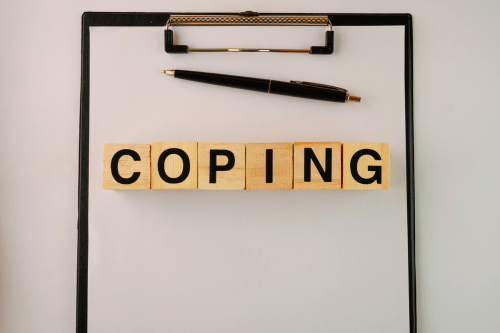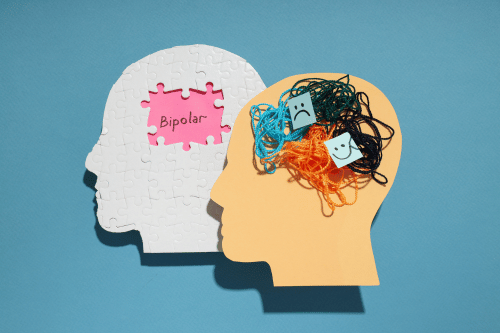Effective BPD Coping Skills: Manage Symptoms and Improve Emotional Well-Being
Borderline Personality Disorder (BPD) presents a unique set of challenges that affect emotional regulation, behavior, and relationships. It is marked by intense emotions, impulsive behaviors, and unstable relationships, making everyday life overwhelming for those living with the condition. However, with the right coping skills and professional guidance, individuals with BPD can manage their symptoms and live a more fulfilling life. In this article, we will explore key coping skills for BPD, how to implement them, and the importance of seeking treatment.

What Is Borderline Personality Disorder?
BPD is a mental illness characterized by emotional instability, difficulties in interpersonal relationships, and an unclear self-image. People with BPD often experience intense emotions, mood swings, and impulsive behavior. These symptoms can appear early in life, typically emerging in early adulthood. Without effective intervention, individuals may engage in harmful activities such as self-harm, substance abuse, and other dangerous behaviors.
Symptoms of BPD include:
Intense emotions that shift rapidly
Fear of abandonment or rejection
Unstable personal relationships
Episodes of anger or irritability
Impulsive behaviors, such as overspending or substance misuse
Learning to manage these symptoms is essential to achieving emotional well-being and avoiding unhealthy behaviors.
1. The Importance of Dialectical Behavior Therapy (DBT)

Dialectical Behavior Therapy (DBT) is one of the most effective treatment options for individuals with BPD. DBT teaches a variety of skills designed to help people regulate their emotions, develop mindfulness, and improve distress tolerance. For many people with BPD, learning to stay present in the current moment can be life-changing.
Through DBT, individuals practice self-awareness and gain tools for managing emotional responses. These coping skills not only help with intense emotions but also allow people to respond differently to situations that would have previously triggered negative thoughts or impulsive behavior.
Key Components of DBT for BPD:
Emotional Regulation: Learning how to understand and manage emotional distress.
Mindfulness Practices: Staying grounded in the present moment to avoid emotional overwhelm.
Distress Tolerance: Techniques to help individuals tolerate and survive crises without self-harm or substance misuse.
2. Emotional Regulation and Self-Awareness
Emotional regulation is a critical part of managing BPD. People with BPD experience emotions more intensely than others, and these emotions can feel overwhelming. Through self-awareness, individuals learn to recognize these emotions early and practice coping skills to avoid escalation.
Techniques for Emotional Regulation:
Breathing Exercises: Focused breathing helps reduce anxiety and maintain emotional balance.
Visualization: Imagining calming scenes or places can shift attention from difficult emotions to positive thoughts.
Journaling: Writing down feelings allows individuals to process emotions safely and thoughtfully.
Developing self-awareness empowers people with BPD to recognize when they are about to experience intense emotions, giving them the chance to use coping skills before emotions become overwhelming.
3. Self-Care and Physical Health

Self-care is essential for both mental and physical health. Engaging in self-care activities not only improves emotional well-being but also helps individuals manage symptoms of BPD. Exercise, in particular, has been shown to reduce anxiety and depression, which are common co-occurring conditions for people with BPD.
Examples of Self-Care Activities:
Physical Activity: Regular exercise, such as yoga or walking, promotes physical health and emotional regulation.
Warm Baths: Taking a warm bath can help individuals relax and feel more grounded.
Creative Outlets: Drawing, painting, or writing can be therapeutic and provide a healthy way to process emotions.
These activities support emotional well-being by offering moments of relief and promoting a more balanced state of mind.
4. Managing Triggers and Emotional Distress
One of the biggest challenges for people with BPD is managing emotional triggers. Triggers are situations or events that provoke intense emotional responses. Identifying these triggers is crucial for preventing emotional outbursts or harmful behavior.
How to Handle Triggers:
Mindfulness Techniques: Staying grounded in the current moment helps individuals remain calm during triggering events.
Distress Tolerance Skills: Holding an ice cube or splashing cold water on the face can redirect attention and reduce distress.
Effective Communication: Learning how to express needs clearly helps prevent conflict and emotional escalation.
By practicing these techniques, people with BPD can better cope with emotional distress and avoid harmful activities like self-harming behaviors or substance misuse.
5. Strengthening Interpersonal Relationships
BPD often causes difficulties in maintaining stable relationships. Feelings of abandonment, intense fear, and unstable self-image can lead to relationship problems. However, developing healthy interpersonal relationships is possible with the right skills and support.
Strategies for Healthy Relationships:
Effective Communication: Open and honest communication helps reduce misunderstandings and build trust.
Setting Boundaries: Clear boundaries are essential to prevent codependency and maintain emotional well-being.
Seeking Professional Help: Working with a therapist or mental health professional can provide additional guidance for managing relationship challenges.
Healthy relationships are an important part of recovery, providing support and helping individuals feel connected to others.
6. Avoiding Harmful Coping Mechanisms
It is common for people with BPD to engage in harmful activities, such as substance misuse or self-harm, to cope with emotional pain. Recognizing the warning signs of these behaviors and replacing them with healthier different coping skills is essential for long-term well-being.
Warning Signs of Harmful Behavior:
Substance Use: Turning to drugs or alcohol to cope with emotional distress.
Self-Harm: Engaging in self-injury to manage overwhelming emotions.
Unhealthy Behaviors: Impulsive actions, such as reckless spending or dangerous relationships.
Seeking treatment from mental health professionals can provide individuals with the tools they need to avoid harmful activities and develop healthier coping strategies.
7. Support Networks and Treatment Options
Support is essential for people with BPD. Building a network of supportive family members, friends, and professionals ensures that individuals have people they can rely on during difficult moments. Treatment options such as DBT, individual therapy, and group therapy also offer essential tools for managing BPD symptoms.
Benefits of Professional Help:
Therapists: Provide strategies for emotional regulation and interpersonal skills.
Clinical Psychologists: Offer in-depth psychological support and diagnosis.
Support Groups: Create a sense of community and understanding among individuals with similar experiences.
If you or someone you know is struggling with BPD, seeking professional help is the first step toward managing symptoms and achieving emotional well-being.
Conclusion
Living with BPD can be challenging, but with the right coping skills and treatment, individuals can lead meaningful and fulfilling lives. Skills such as emotional regulation, mindfulness, and effective communication are essential for managing symptoms and building healthy relationships. Engaging in self-care, recognizing triggers, and seeking professional help further support emotional well-being.
By incorporating these strategies into daily life, people with BPD can manage their symptoms and reduce the impact of intense emotions and impulsive behaviors. Treatment options, such as DBT and therapy, provide additional support in the journey toward recovery.
BPD does not define a person’s ability to live a balanced life. With the right support and tools, individuals can learn to cope with difficult emotions and build a healthier, more stable future.





